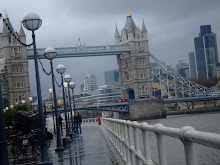Robert Peston may not be a poet so much as the herald of bad news but he invariably gets it right. Not just in the blog post yesterday but also earlier on the Today programme when he explained that Ireland's government bailout of the banks 2 years ago, meant a whopping £110bn loan from the ECB, an amount greater than the total value of the Irish economy. Since then, the economic slowdown, reduced government tax receipts and increased welfare payments has led to the current crisis.
Trouble is, for ex-pats like me it has long been a mystery how Ireland could sustain in the best of times, not to mention the past 2 years, a welfare benefit system which saw Jobseekers Allowance paid at a rate of £196 Euros per week, + £130 with a dependent spouse + £29 per each dependent child - by UK standards these amounts are astonishing. In the good times, those rates as well as those for Child Benefit and Pensions were admirable, signs of a society willing to share success with those less fortunate. Except that the 'success' was an illusion or more accurately, a mass delusion which saw ordinary homes in relatively rural areas valued at London prices and middle income families, investing in second homes to rent (to whom, I often wondered). Top that with the low tax rates which everyone enjoyed particularly those who decided it was more prudent to be self-employed on an incorporated basis and pay only 12% corporation tax and it becomes clear how badly things can go wrong when the easy money dried up.
Well, someone a couple of years back shouted out that the Emperor had no clothes and suddenly everyone woke up. Ireland like many post-industrial countries does not produce enough and unlike say, Britain is relatively low in the natural resources which matter, like oil and gas.
Some will say it was good while it lasted; others blame the politicians (always a safe bet, although isn't the electorate responsible for the politicians they elect? ) but the truth is that most people over 30 when this 'boom' started over 10 years ago, were wary and couldn't quite figure out where the wealth had come from and what was sustaining it.
In many ways, BM suspects that the situation in the UK is worse; the tax threshold is already high, the level of welfare benefits paid relatively modest so there is little room for manoeuvre...at least Ireland has scope to cut further and raise taxes if necessary. On the other hand Ireland did not enjoy anything like the investment in health and education that the UK has seen over the past 10 years or so.
Personally, I never liked the brash 'loadsamoney' Ireland but that's not to say that I enjoy seeing it humbled in this way either. And as the Irish Times (not previously known for its republican stance) put it today, to think that Ireland's struggle for independence over 200 years has led to this day. All's changed.
Friday, 19 November 2010
Subscribe to:
Post Comments (Atom)





No comments:
Post a Comment